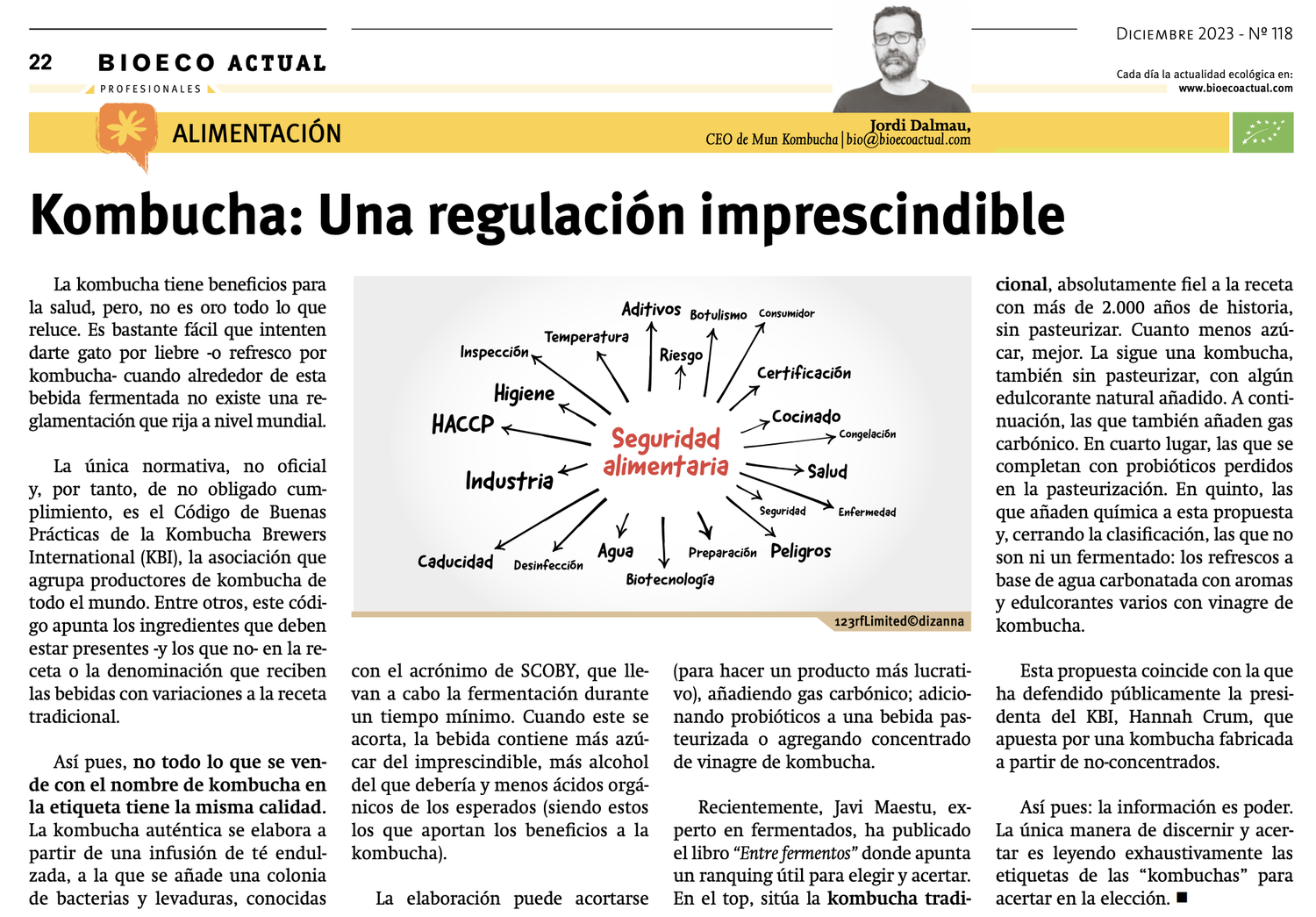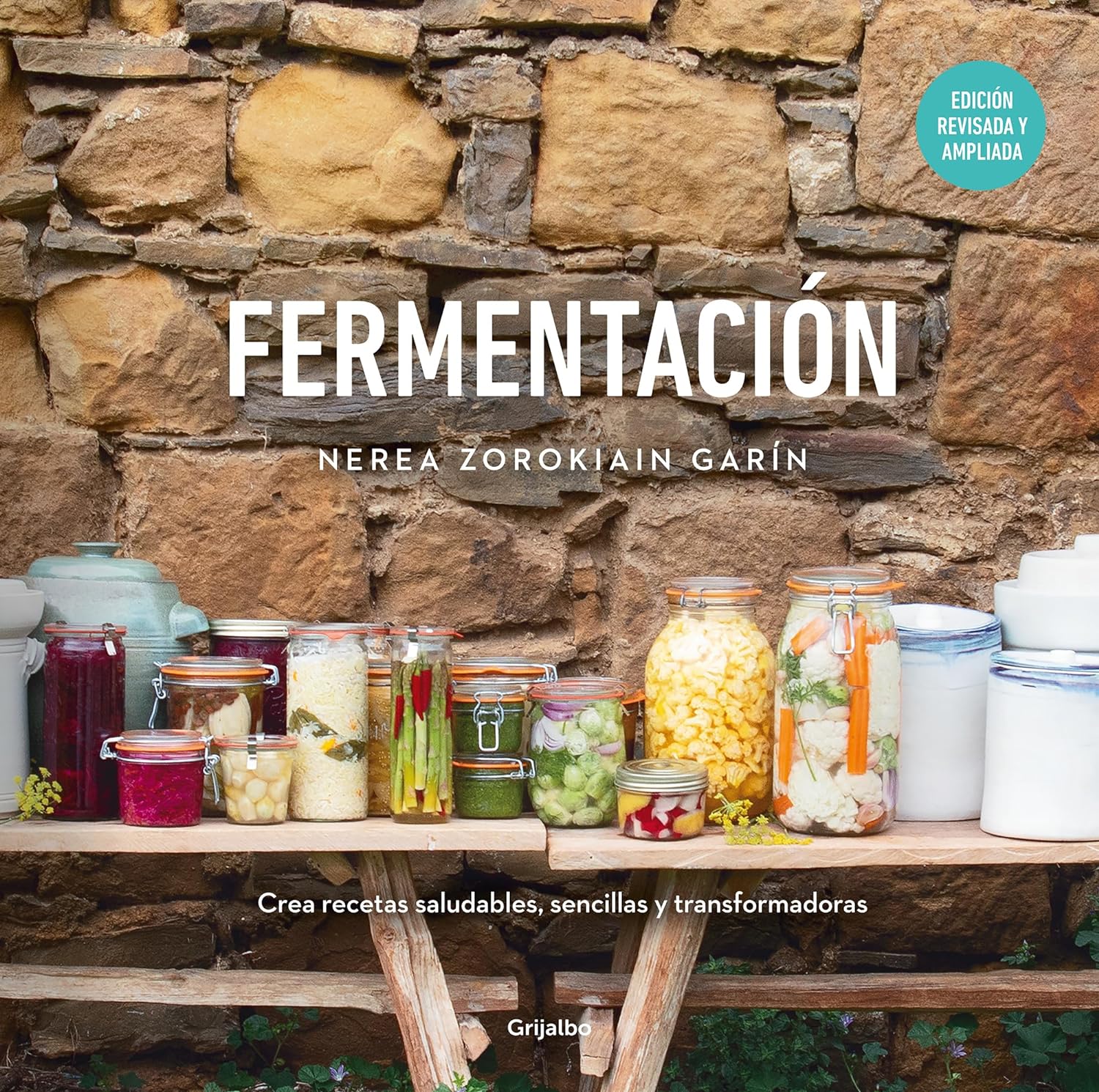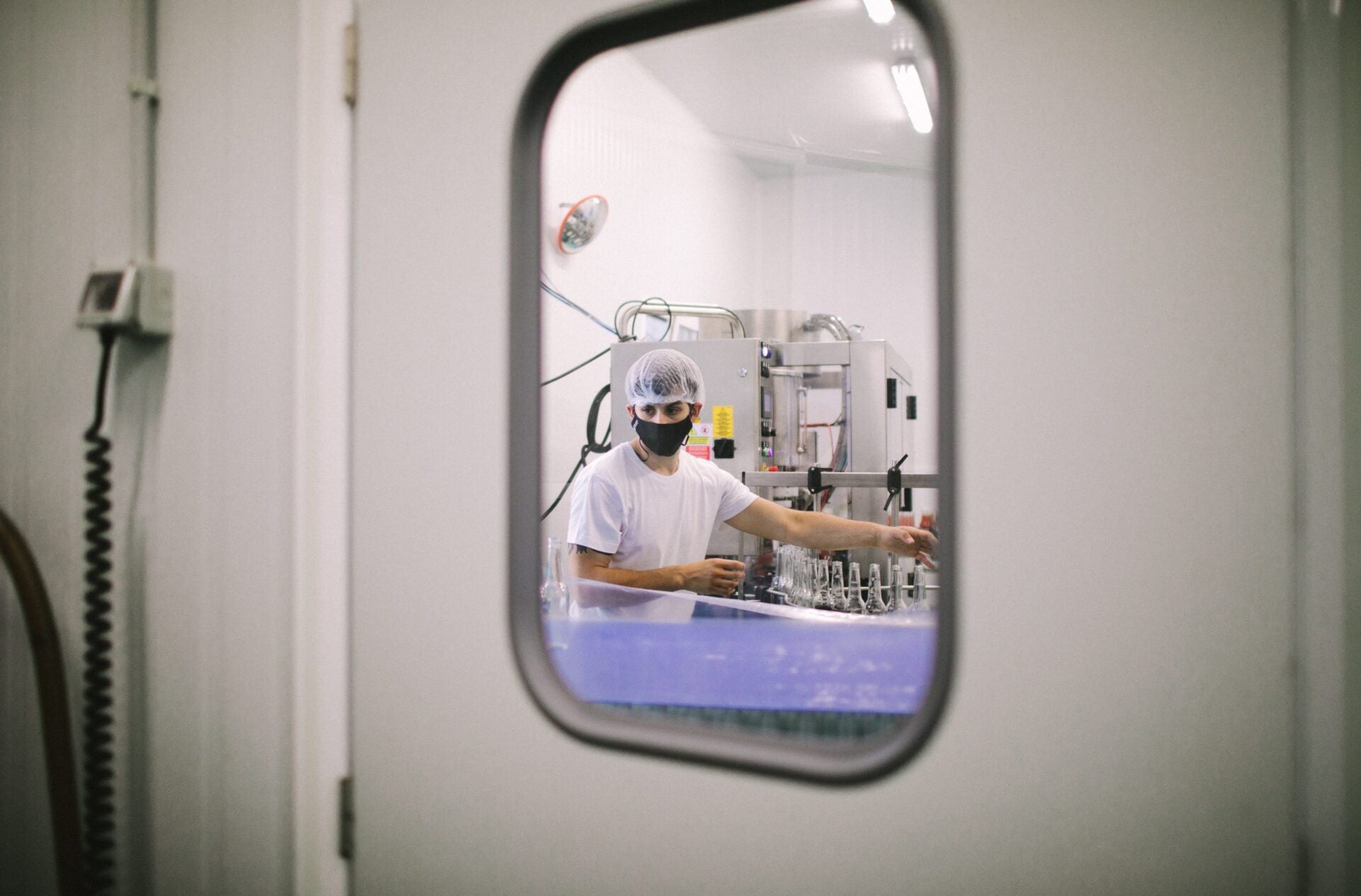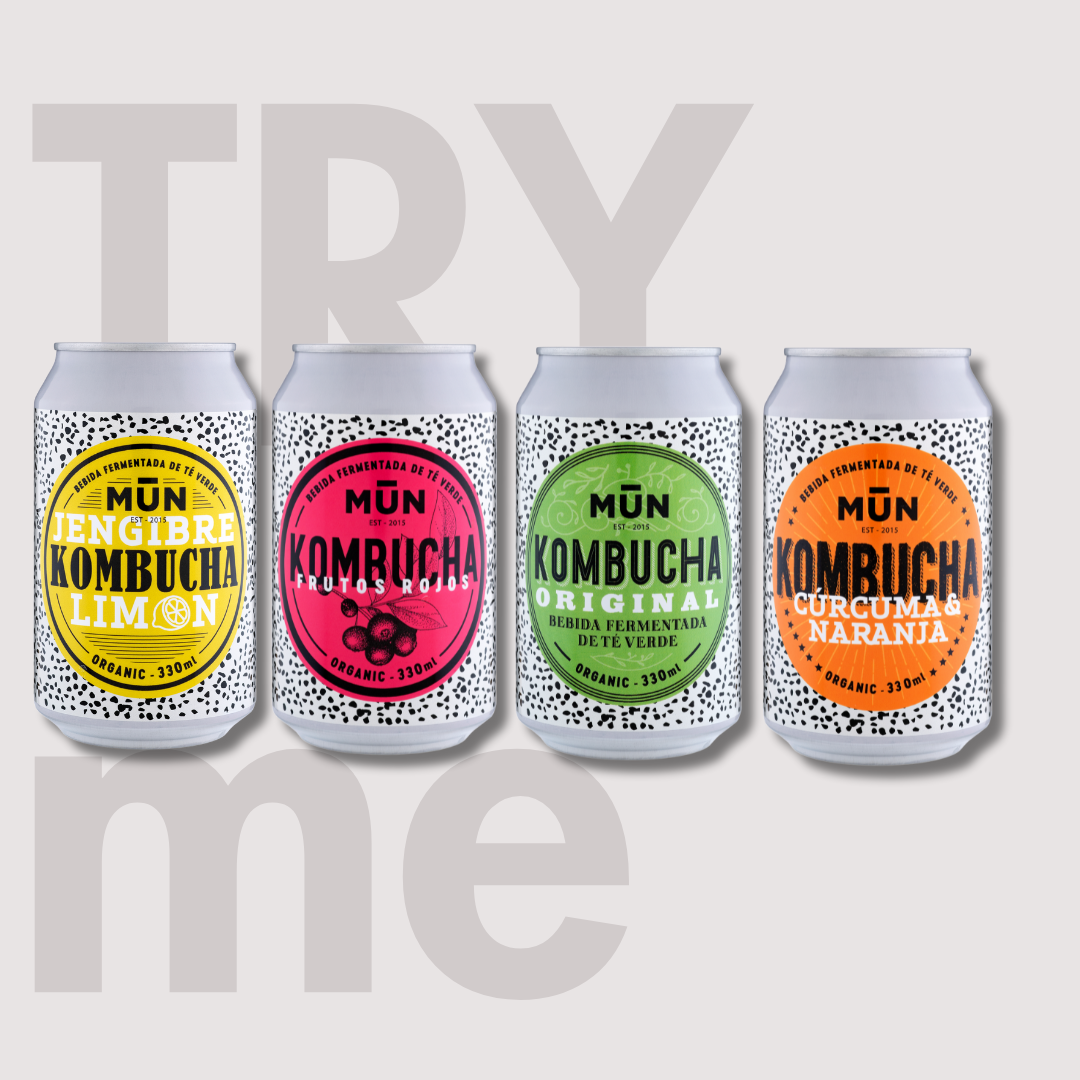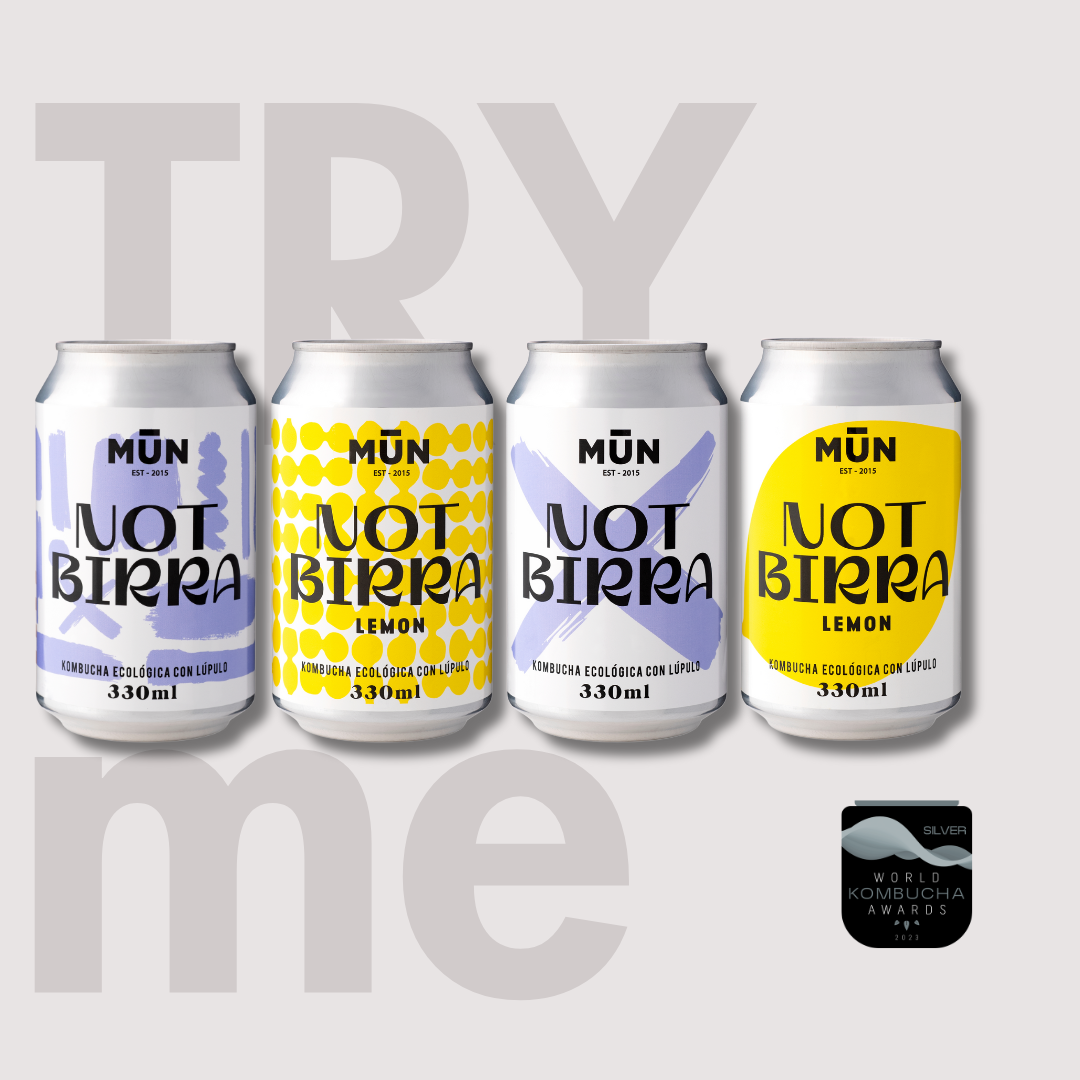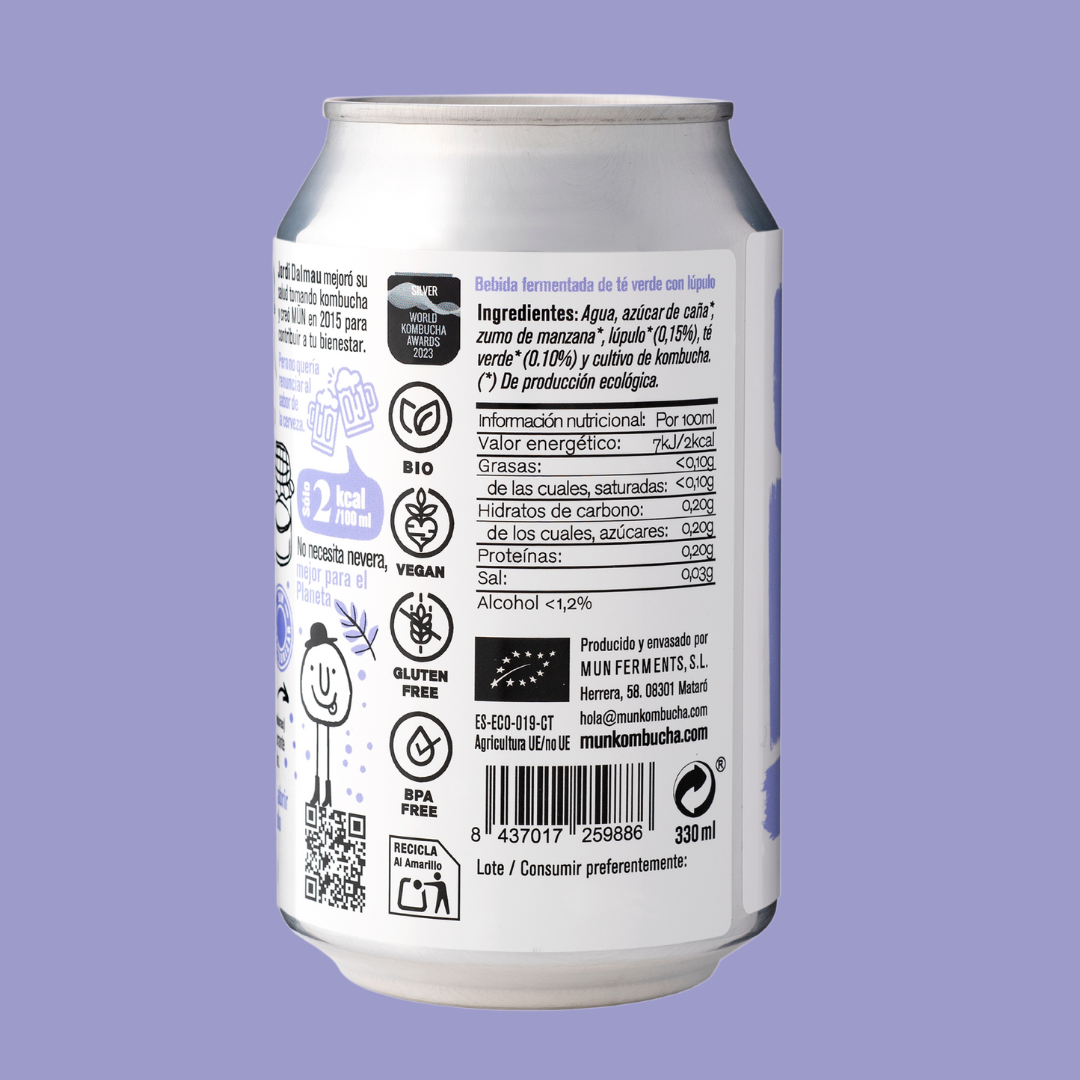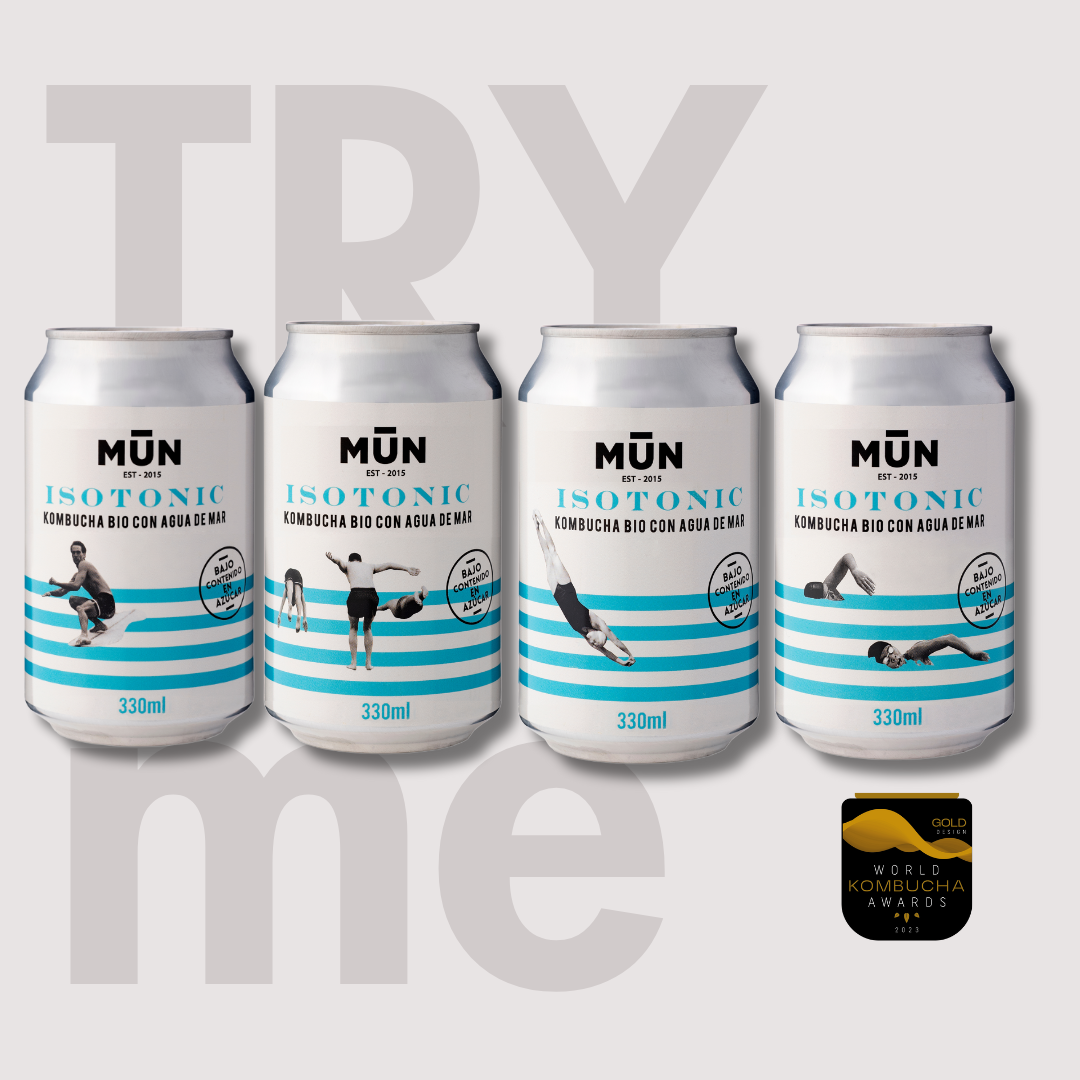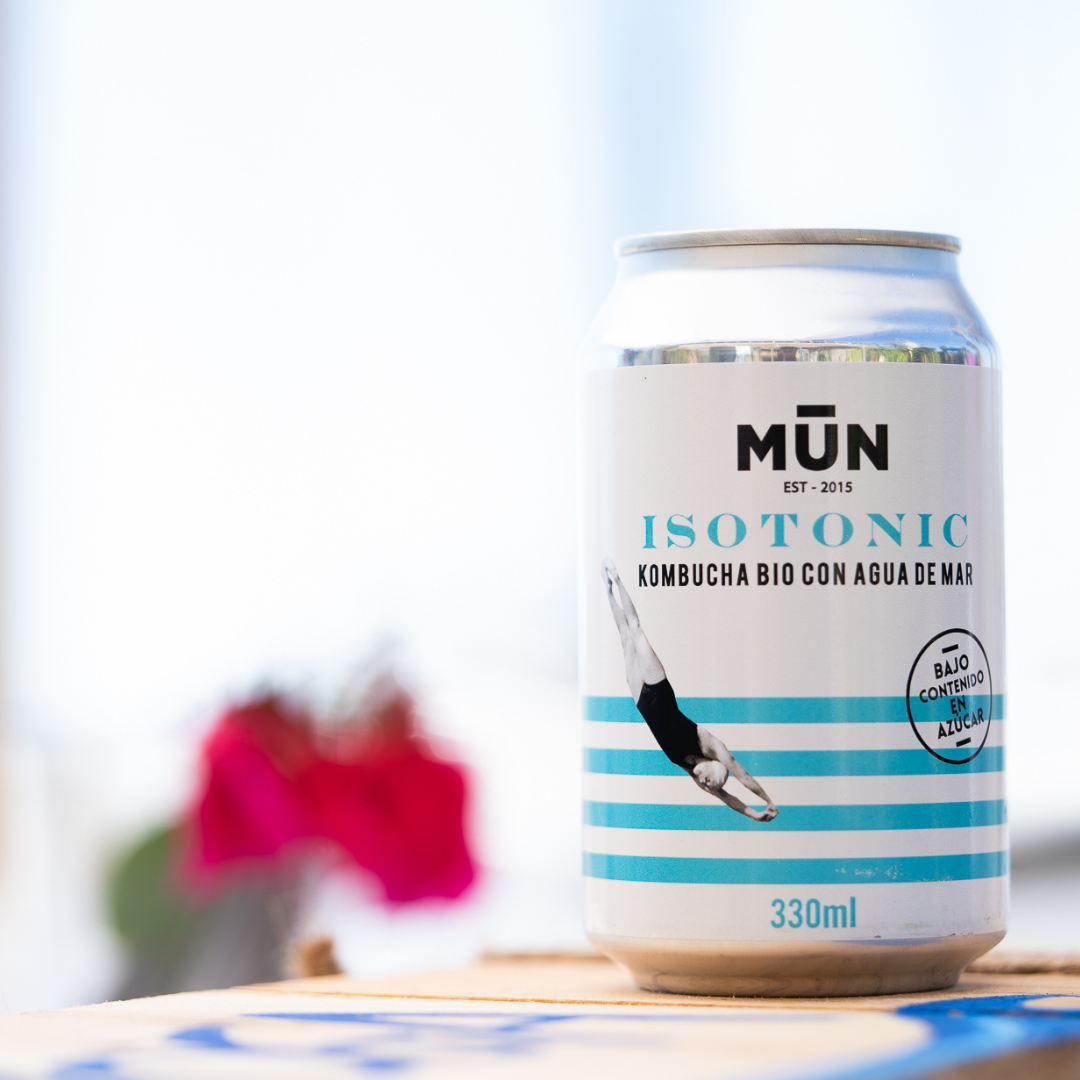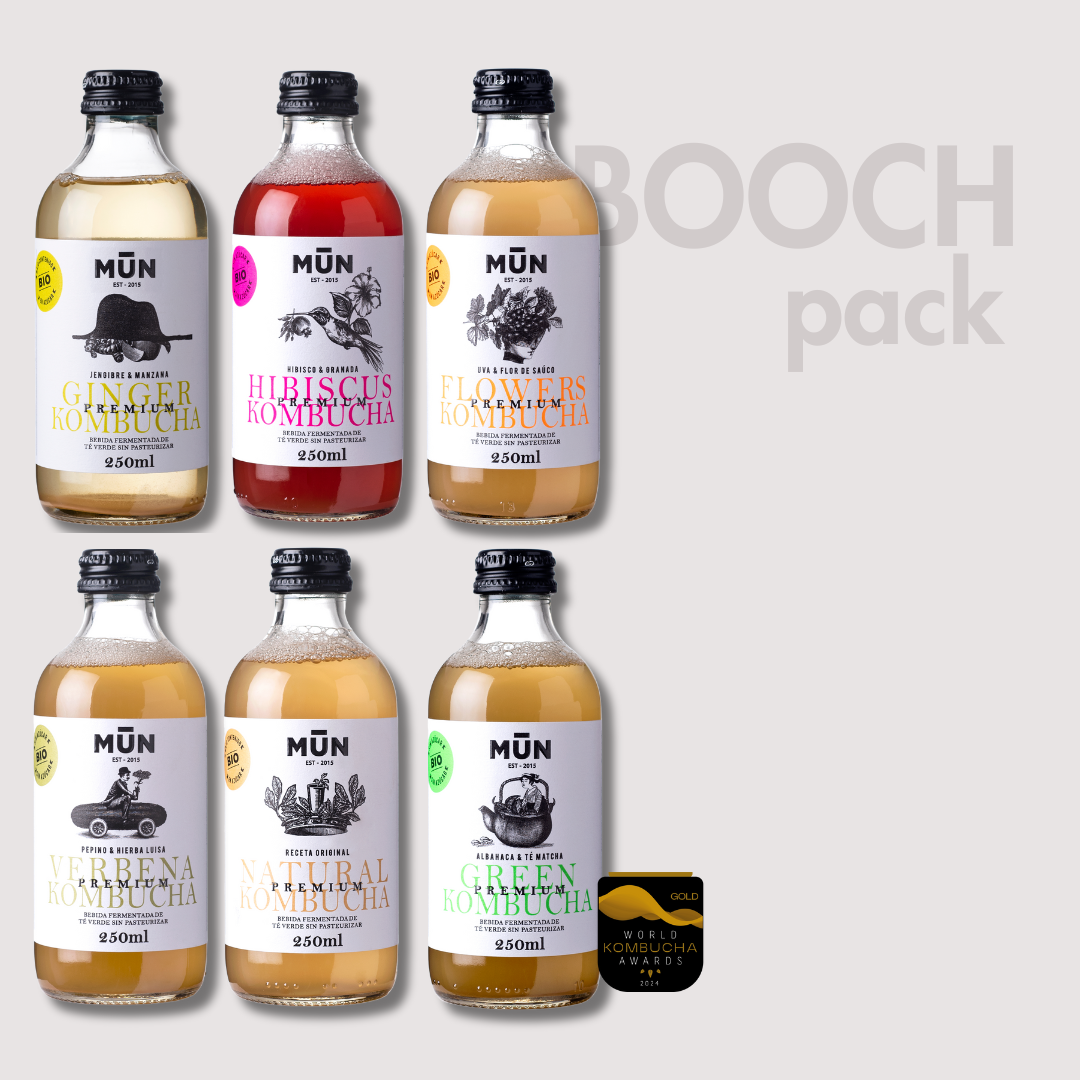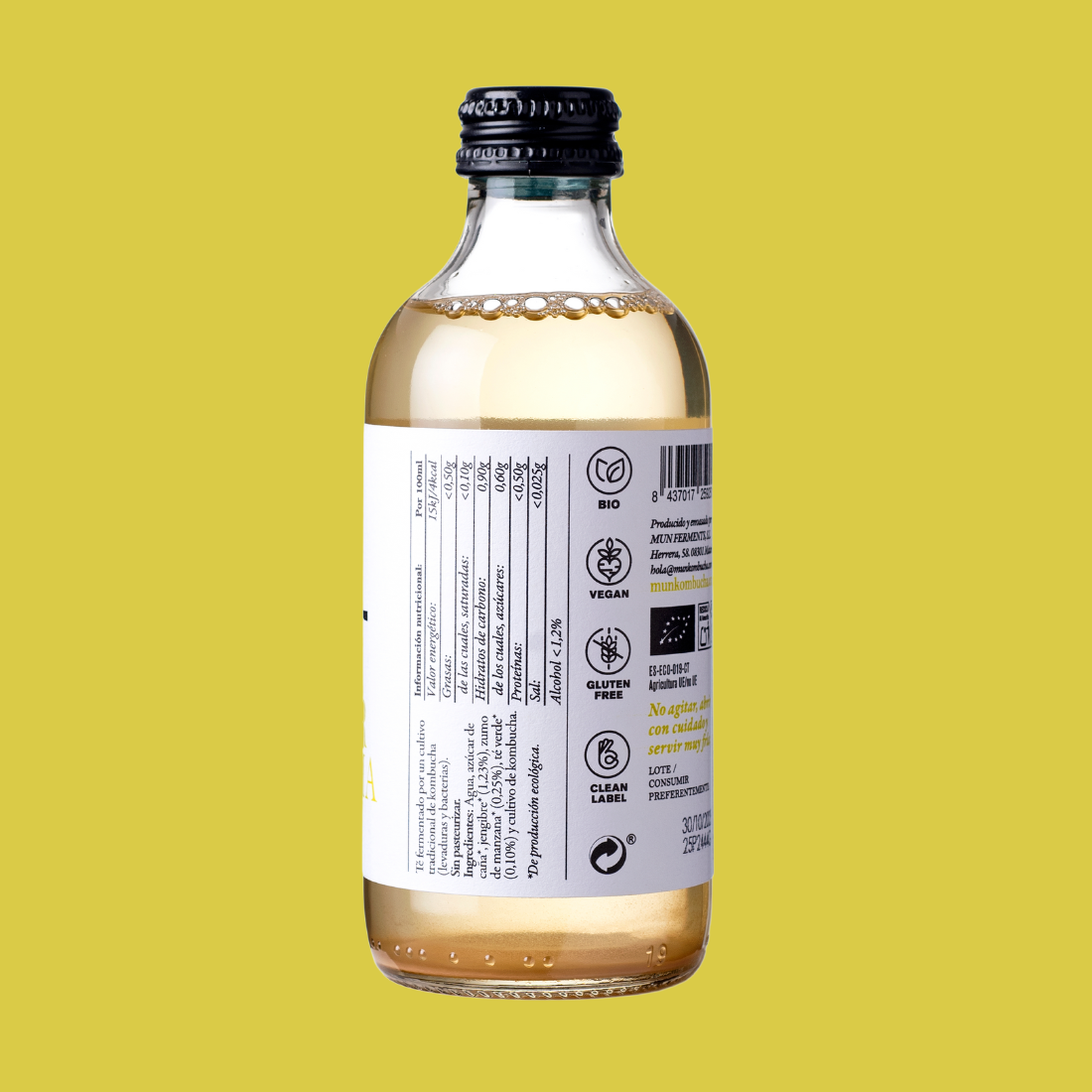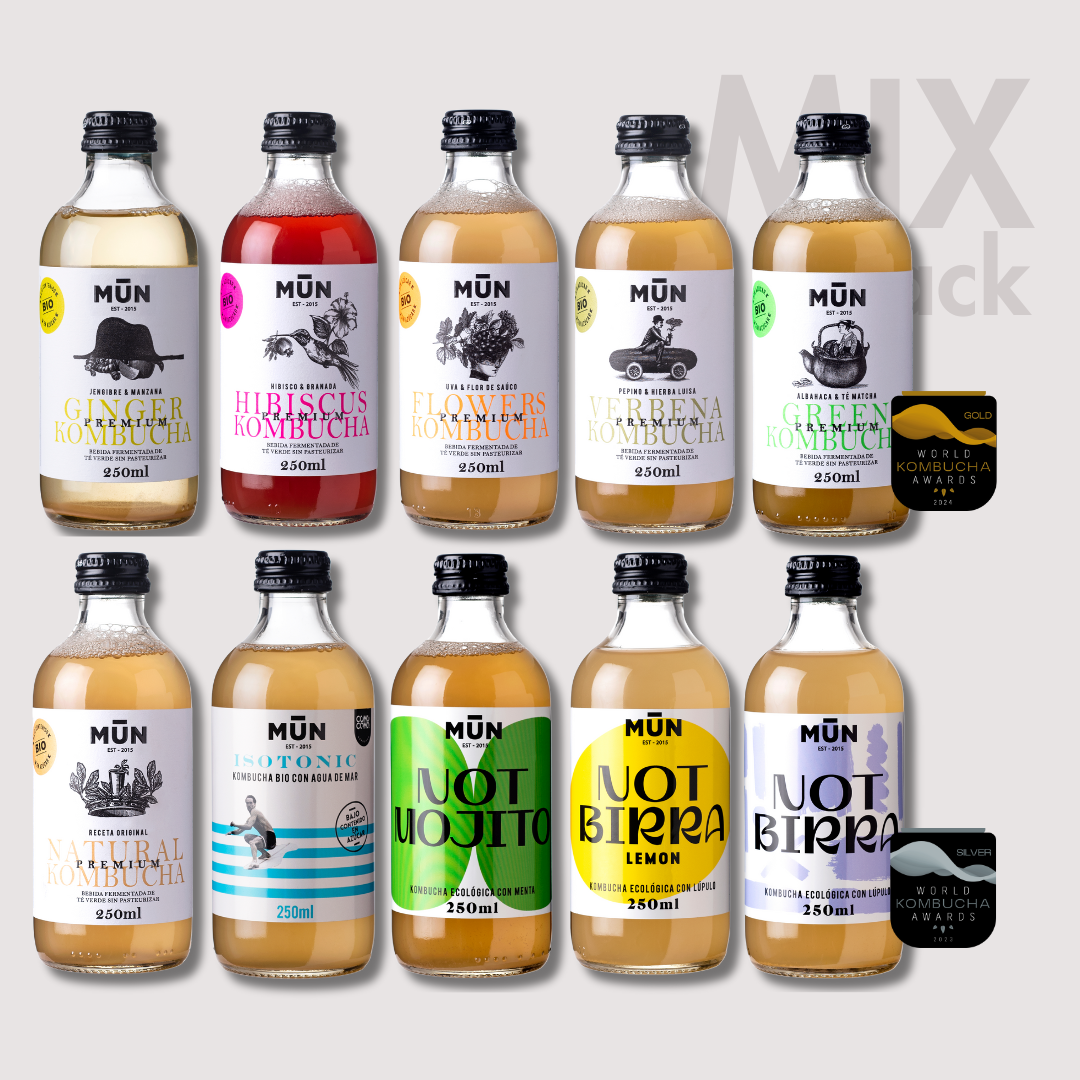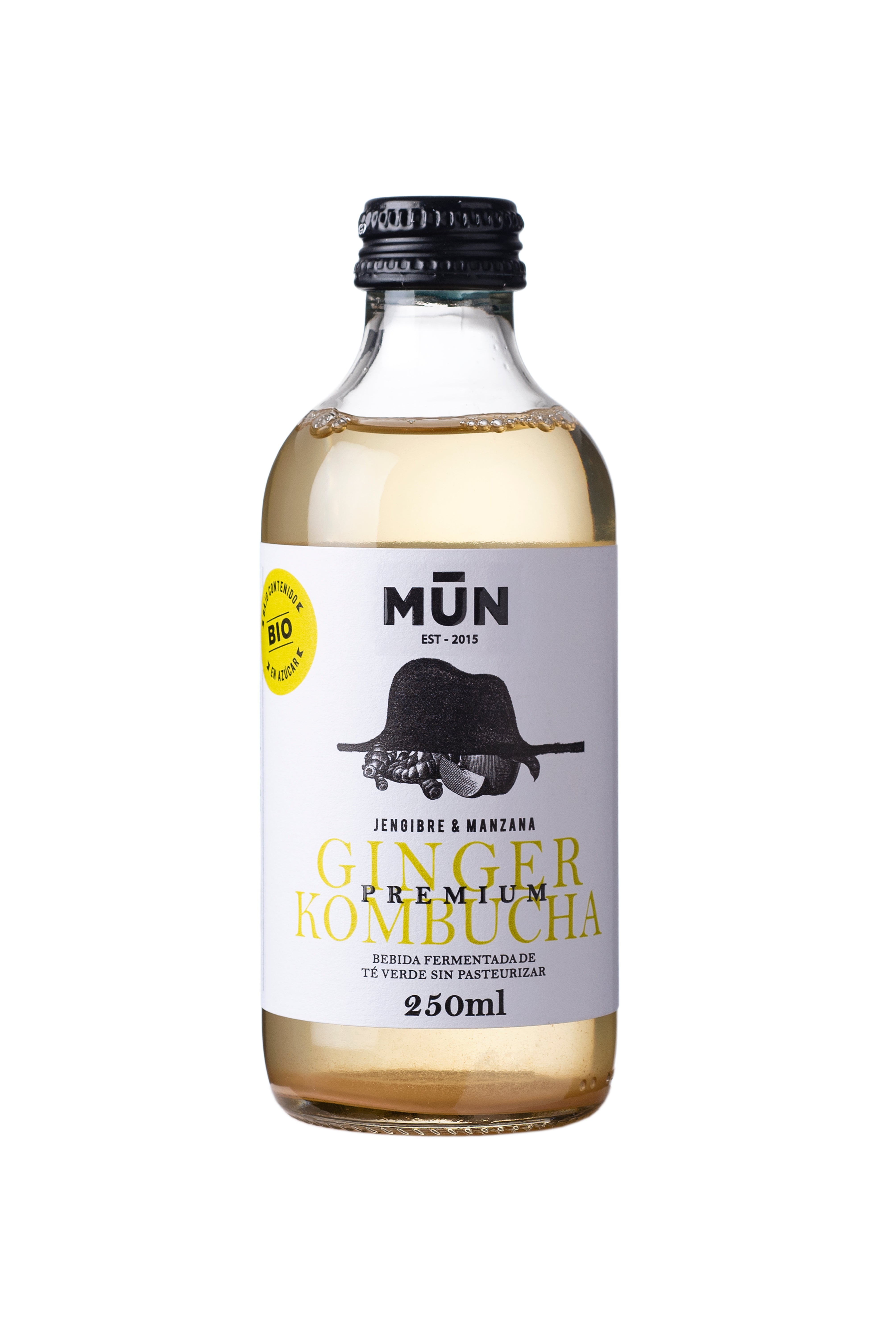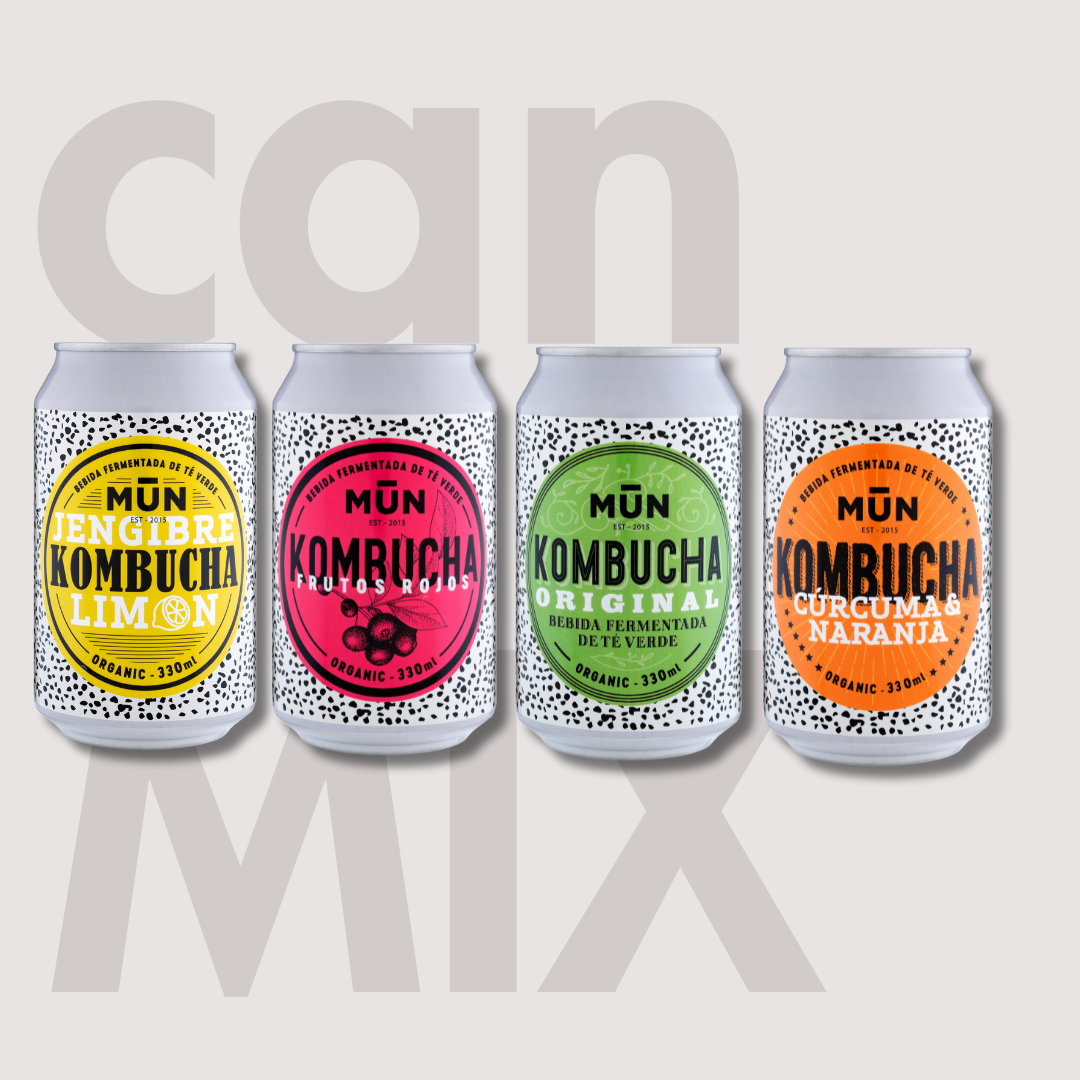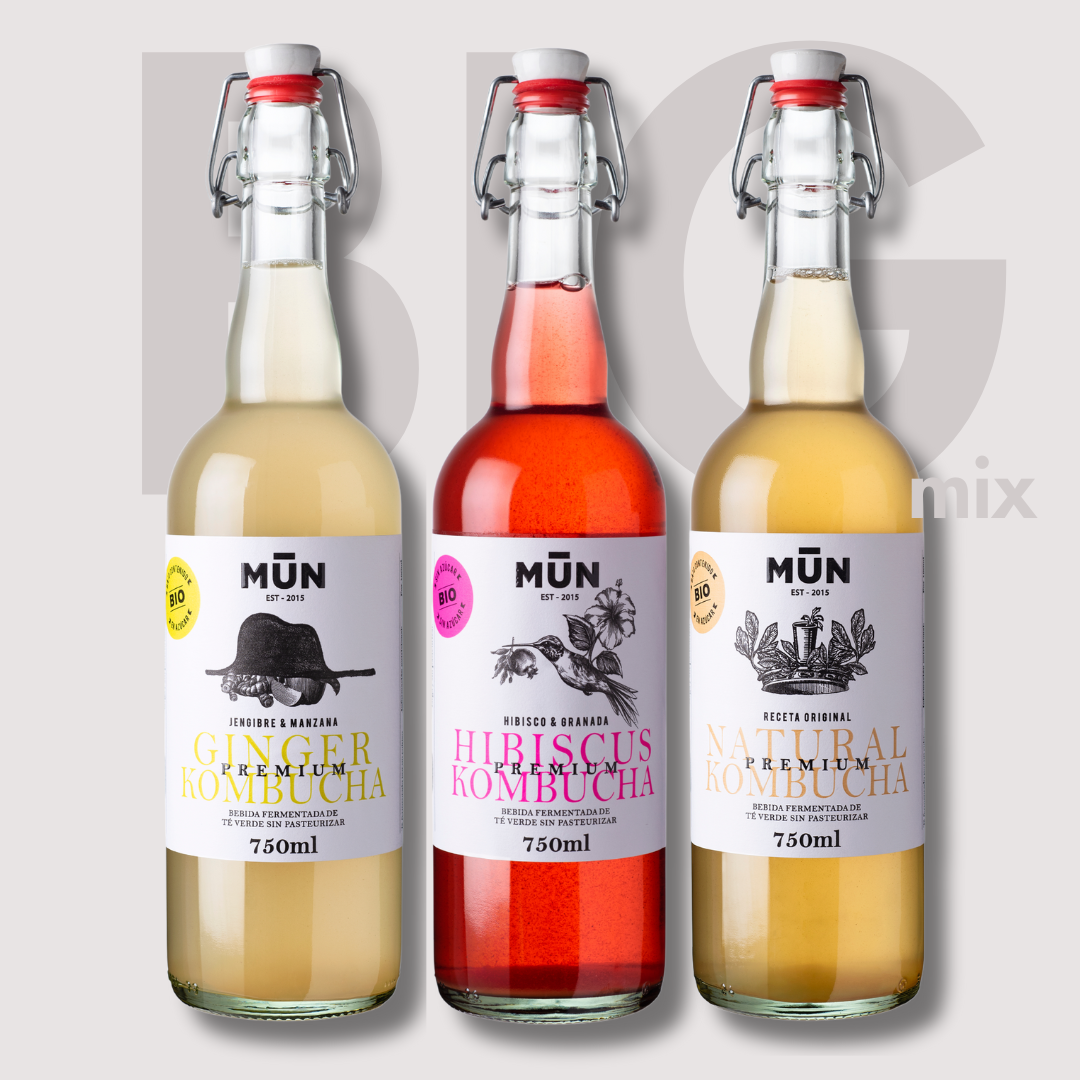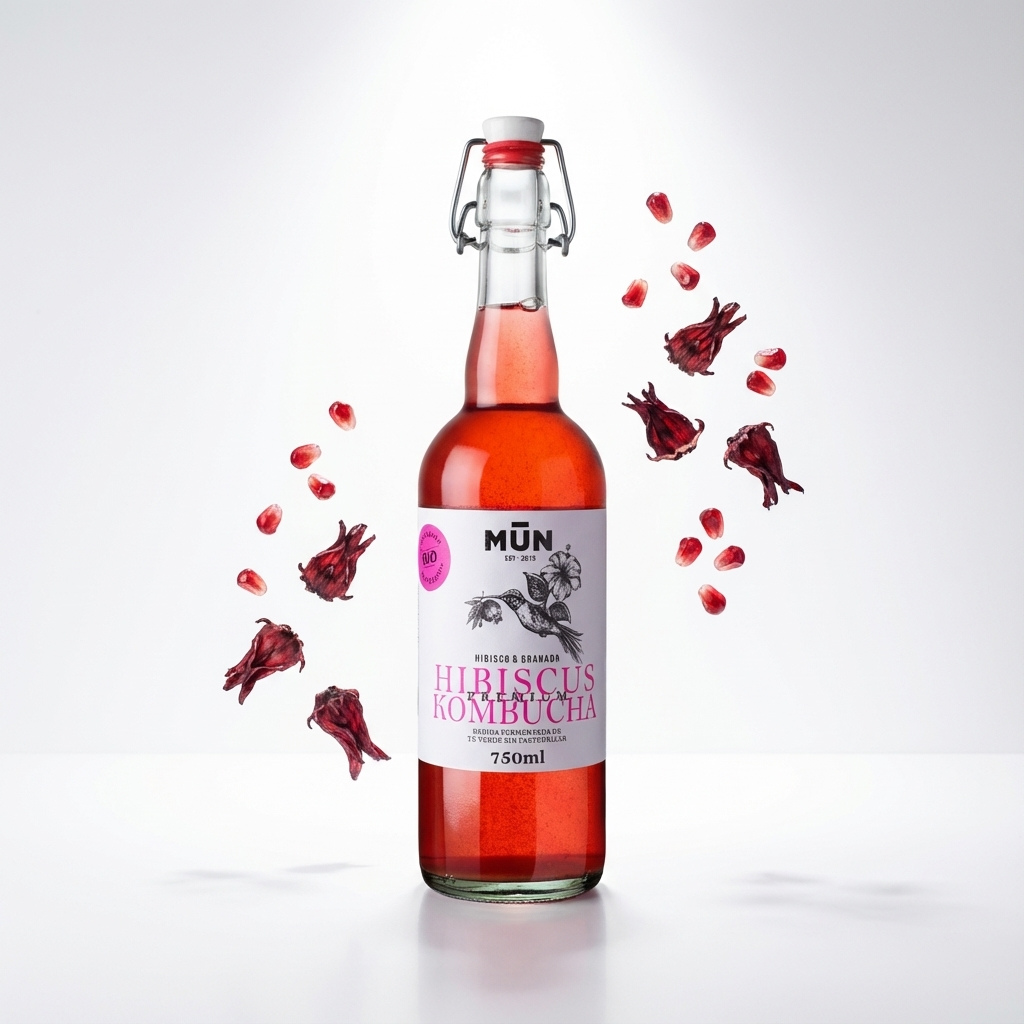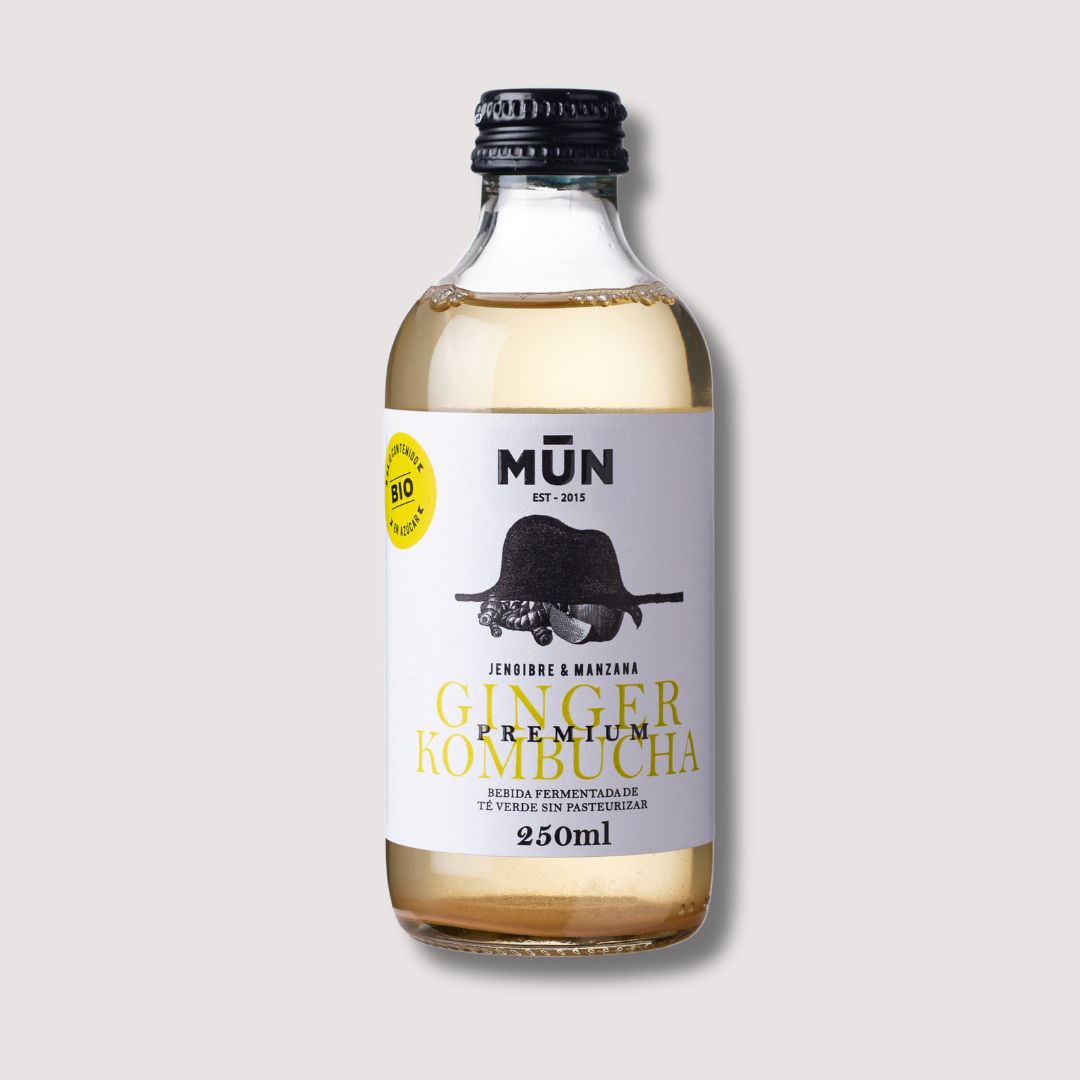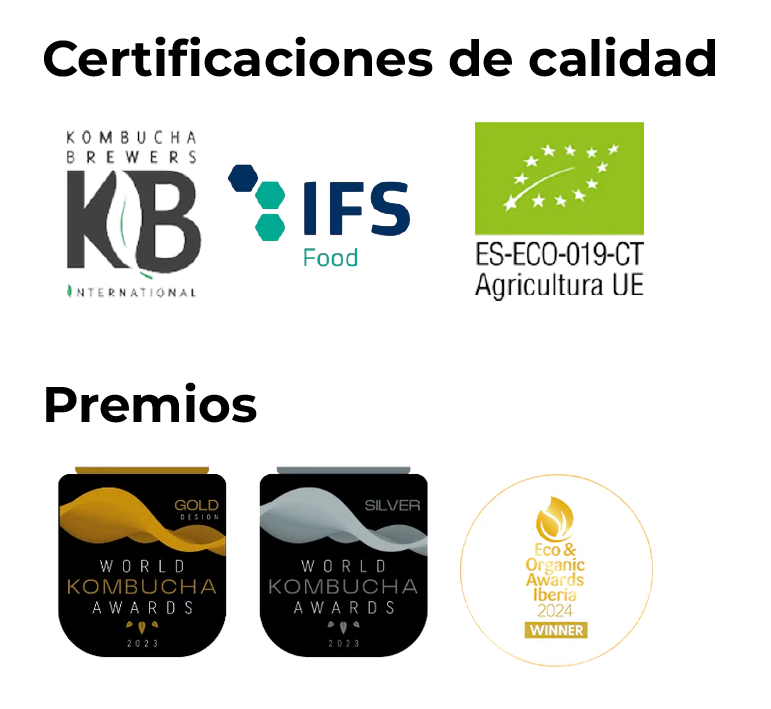This month we give our point of view at BioEco on the need for regulation around fermented kombucha tea . Non-existent regulation worldwide. There are more and more of us who, as the drink becomes recognized among consumers and more and more companies that produce and sell this product continue to appear, we consider that Not everything that is sold can be considered within the same category.
A regulation Establishing the basic requirements that an authentic kombucha must meet would make the job easier for those who currently face the arduous task of having to choose from a shelf full of products with eye-catching labels. Labels that, in most cases, do little to clarify what is contained in the bottle that you will put in the cart... and you will end up drinking.
The president of the KBI, Hannah Crum, has been especially sensitive to the problem and in favor of this regulation. We must row together and the consumer must be able to choose which drink they choose, knowing all the details of it. You may not be looking for the health benefits of kombucha and are content to just drink a soda-like drink. The fact of the matter is that you have to know what you are buying.
This is the article signed by Jordi Dalmau, co-founder and CEO of Mūn Ferments, where he analyzes the current situation. You will find it in the November 2023 edition of BioEco Actual, a magazine dedicated to the dissemination of organic food and living.
Kombucha: An essential regulation
Kombucha has health benefits, but all that glitters is not gold. It is quite easy for them to try to give you a piece of cake - or soda for kombucha, in this case - when there are no regulations governing this fermented drink worldwide.
The only non-official regulation and, therefore, not mandatory, is the Code of Good Practices of Kombucha Brewers International (KBI) , the association that brings together kombucha producers from all over the world and to which Mūn Ferments has belonged since its foundation. Among others, this code points out the ingredients that must be present - and those that must not - in the recipe or the name given to drinks with variations on the traditional recipe.
And not everything sold with the name kombucha on the label has the same quality. Authentic kombucha is made from a sweetened tea infusion, to which is added a colony of bacteria and yeast, known by the acronym SCOBY, which carry out fermentation for a minimum time. When this is shortened, the drink contains more sugar than necessary, more alcohol than it should and fewer organic acids than expected (these being the ones that provide the benefits to kombucha).
Processing can be shortened (to make a more lucrative product) by adding carbon dioxide; adding probiotics to a pasteurized drink or adding kombucha vinegar concentrate.

Recently, Javi Maestu, nutritionist dietician and expert in fermented foods, has published the book “ Entre fermentos ” where he points out a useful ranking to choose and get right. At the top, place the traditional kombucha , absolutely faithful to the recipe with more than 2,000 years of history , unpasteurized. The less sugar, the better. It is followed by a kombucha, also unpasteurized, with some added natural sweetener. Next, those that also add carbon dioxide. Fourthly, those that are completed with probiotics lost in pasteurization. In fifth place, those that add chemistry to this proposal and, closing the classification, those that are not even fermented: soft drinks based on carbonated water with various aromas and sweeteners with kombucha vinegar.
This proposal coincides with the one publicly defended by the president of the KBI, Hannah Crum, who is committed to a kombucha made from non-concentrates.
So: information is power. The only way to discern and make the right choice is to thoroughly read the “kombucha” labels to make the right choice.
You can consult the article in its entirety in BioEco Actual.


